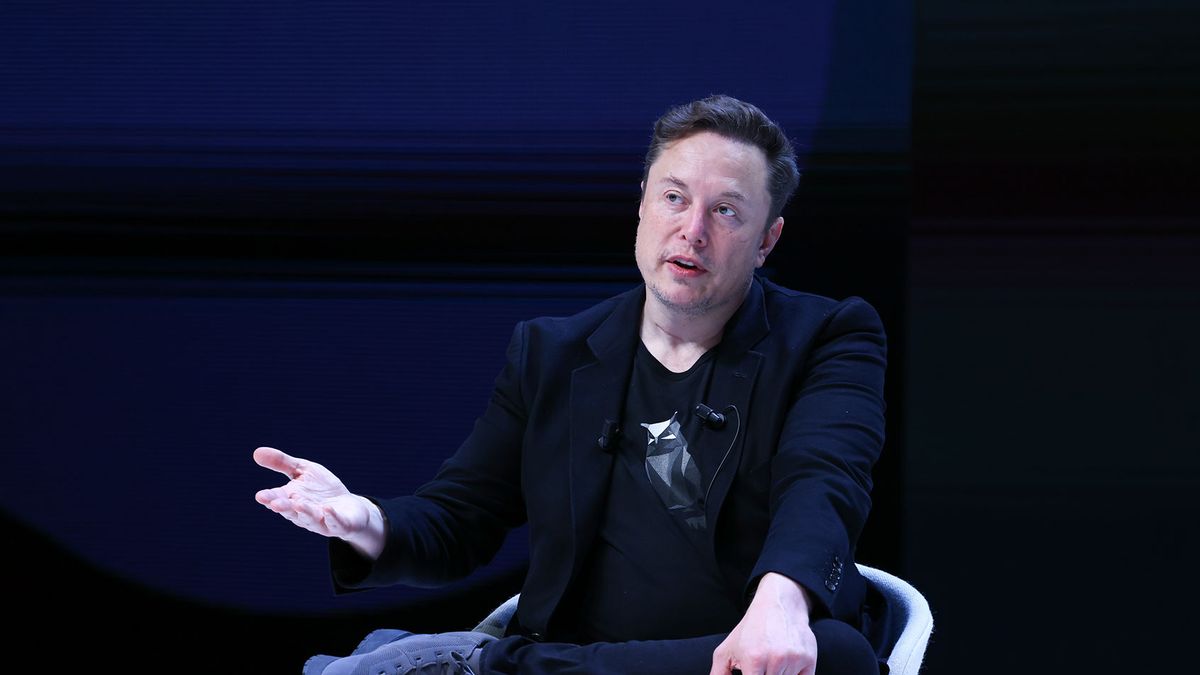Billionaire Elon Musk has stirred controversy once again, this time calling for the outright elimination of the Consumer Financial Protection Bureau (CFPB). In a late-night post on his social media platform, X, the Tesla CEO and influential adviser to the incoming Trump administration argued that the CFPB is redundant and overly burdensome. “Delete CFPB. There are too many duplicative regulatory agencies,” Musk wrote, igniting a heated discussion on the future of financial oversight in the United States.
Here's ads banner inside a post
Musk’s remarks come amid growing criticism of the CFPB from Silicon Valley and conservative circles, who argue that the agency has hindered innovation in financial technology and unfairly targeted startups.
A Clash Between Tech and Regulation
Musk’s comments were spurred by a discussion on Joe Rogan’s podcast, where venture capitalist and fellow Trump supporter Marc Andreessen lambasted the CFPB. Andreessen accused the agency of using its authority to stifle innovation and protect established financial institutions. According to Andreessen, the CFPB “terrorizes financial institutions” and blocks new startups that pose a competitive threat to big banks.
Andreessen’s frustration is not new. Under its current director, Rohit Chopra, the CFPB has taken a tough stance against financial tech firms accused of deceiving customers. Notably, the agency shut down the online payday lender LendUp in 2021, citing illegal practices. LendUp was backed by prominent venture capital firms, including Andreessen Horowitz, Kleiner Perkins, and Google Ventures. The case became a flashpoint in the debate over the CFPB’s role in regulating the burgeoning fintech industry.
Here's ads banner inside a post
The regulator has also been accused of bias against disruptive sectors like cryptocurrency. Andreessen suggested that the CFPB and other federal regulators have pressured banks to cut ties with crypto entrepreneurs and fintech innovators, effectively “debanking” them. “This is a privatized sanctions regime,” Andreessen said, “that lets bureaucrats do to American citizens what we do to Iran — kick them out of the financial system.”
Musk and Trump’s Vision for Financial Deregulation
As a key adviser to President-elect Donald Trump, Musk’s stance on the CFPB aligns with the administration’s broader push for deregulation. Trump has long criticized federal agencies for overreach, and Musk’s call to eliminate the CFPB reflects a shared belief that reducing regulatory burdens could unleash innovation in sectors like financial technology and cryptocurrency.
During his campaign, Trump pledged to dismantle bureaucratic barriers that he claimed were stifling growth in emerging industries. With Musk’s influence and support from Silicon Valley, the incoming administration appears poised to make sweeping changes to the regulatory landscape.
Here's ads banner inside a post
The CFPB’s Role and Its Defenders
Despite the criticism, the CFPB has played a significant role in protecting consumers from financial misconduct since its inception in 2011. Created in the wake of the 2008 financial crisis, the agency was designed to oversee banks, lenders, and other financial institutions to ensure fair practices.
The CFPB has often been a target of conservative lawmakers and business leaders who view it as an example of government overreach. However, its defenders argue that the agency provides critical safeguards against predatory practices, particularly for vulnerable populations.
Recently, the CFPB has taken steps to address concerns about “debanking.” In an August appeals court argument, the agency warned that limiting its ability to police discrimination could undermine its efforts to investigate financial institutions accused of cutting off services to marginalized groups.
The Debate Over “Debanking”
The issue of debanking has become a flashpoint in the broader discussion about the role of federal regulators. Critics like Andreessen claim that the CFPB’s actions disproportionately impact entrepreneurs in controversial sectors, such as crypto and fintech, effectively pushing them out of the financial system.
On the other hand, the CFPB contends that its enforcement actions are necessary to prevent discrimination and protect consumers. In a high-profile case, the agency argued that its ability to investigate debanking practices was essential to ensuring financial institutions operate fairly and inclusively.
A Crossroads for Financial Regulation
Musk’s call to “delete” the CFPB highlights the growing tension between innovation and regulation. As financial technology continues to evolve, the question of how to balance consumer protection with fostering innovation becomes increasingly urgent.
Critics of the CFPB, including Musk and Andreessen, argue that the agency’s approach stifles competition and favors entrenched interests. Meanwhile, its supporters maintain that robust oversight is essential to prevent abuses and ensure a level playing field.
With Musk’s influence on the Trump administration and the incoming president’s deregulatory agenda, the future of the CFPB hangs in the balance. Whether the agency is dismantled or reformed, the debate over its role reflects broader questions about the direction of financial regulation in an era of rapid technological change.
As the battle over the CFPB unfolds, its outcome will have significant implications for the financial technology industry, consumer protection, and the broader economy. For now, the clash between Silicon Valley innovators and federal regulators shows no signs of abating.

